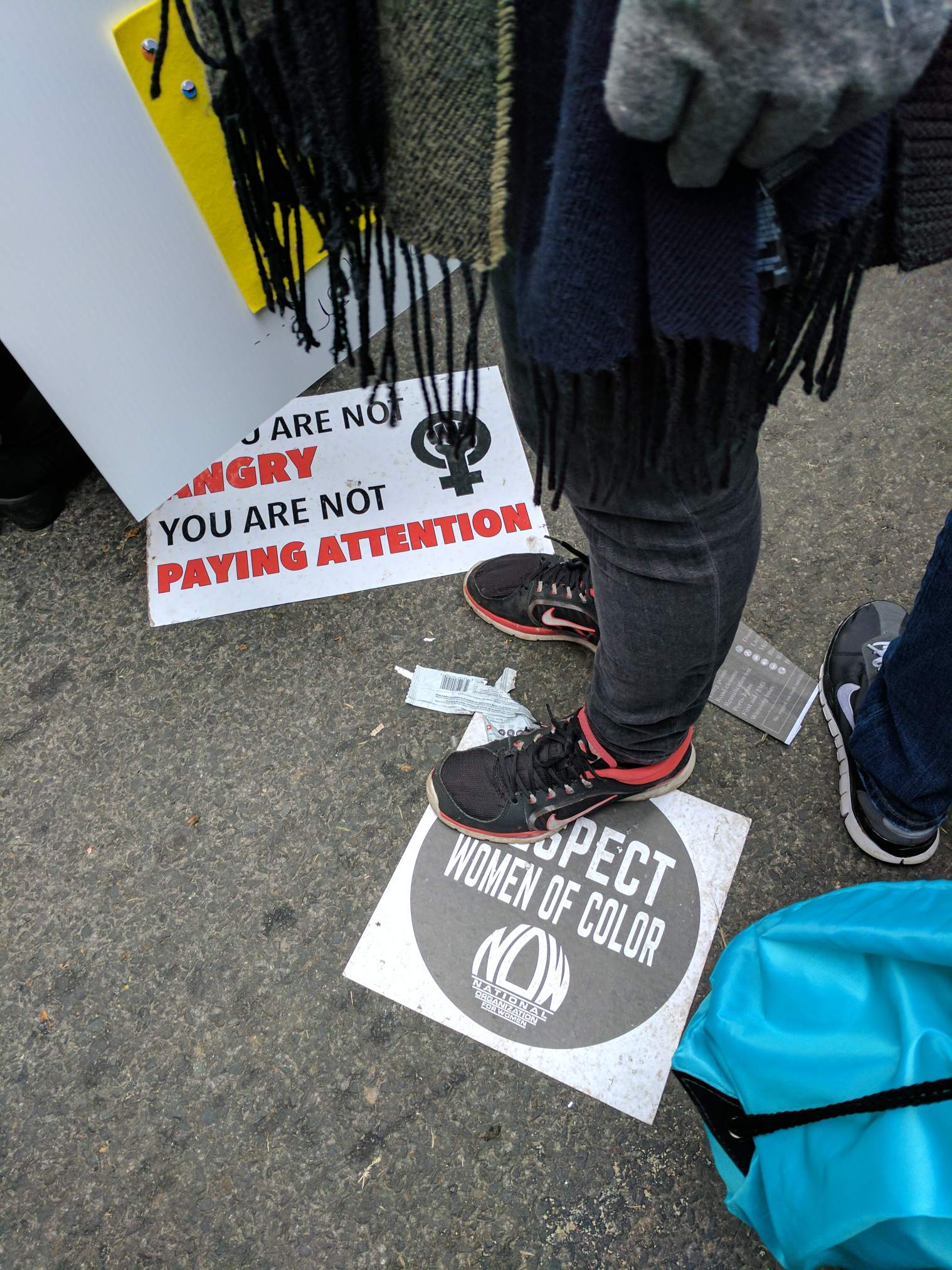As I stepped into the masses headed towards the Women’s March on Washington, I experienced a flood of mixed emotions. The energy of the crowd quickened my pulse and my heart drummed a beat of appreciation for sharing community with so many sisters and brothers organizing for human rights. The sound of my steps echoed a reminder to honor those who marched before me, those who lost their lives on similar streets, fighting for justice all around the world. I inhaled gratitude and noticed hesitation in my breath-- the anxiety and doubt in my lungs from the histories and present actions of white, cisgender women like me creating harm. I paused to catch my breath, oxygenating my commitment for the values, the vision and the platform for the Women’s March, and naming my daily pledge to notice and learn from every moment, even through my own doubts and discomfort.
I felt chills throughout the day at the moments of powerful connection, at the speeches and chants that brought the crowd together. I could fill pages with descriptions of the hope vibrating from from one person to the next, the waves of inspiration covering miles-- and it still wouldn’t fully convey my experience. I could sing about standing alongside some of my colleagues and chosen family, united in our collective commitment to equity, justice and inclusion. We have heard from countless others who documented the global power and potential of this historic march, and it feels particularly crucial to highlight the concurrent and inconvenient truths I experienced throughout the day.
The DC rally was scheduled to transition to marching at 1:15 PM, and as it neared two o’clock you could feel a shift in the crowd. After standing shoulder to shoulder for over three hours, many people were hungry, thirsty, tired, and needed restrooms. Attendees began chanting “March! March! March!” at the stage, trying to encourage the organizers to start the march. The restlessness grew exponentially with each speaker. I could barely make out the words, “We are stronger together” from the stage, over the chants and complaints of folks around me.
This impatience felt familiar. Historical amnesia was alive in the crowd, and I tasted the bitter flavor of missed opportunity in my mouth. The crowd tried to move on its own, shouts of “MARCH!” drowning out the voice of Melissa Mays from Flint, Michigan, as she pleaded, “Please don’t forget about us, because we haven’t forgotten about you… we stand with all of you for the rights we all deserve, like clean water and clean air.”
History was visible as our impatience continued to silence the voices from the stage. Past and present became one as we repeated the historical pattern by which people of color, queer and trans folks and other people with marginalized identities were left behind by the feminist movement. I locked eyes with my colleagues and friends as we observed and mourned the implications of what was happening around us.

My intent isn’t to shame anyone for what unfolded on Saturday. I’m in awe of the choice that so many people made to come to DC and around the world to unite in solidarity, and I trust that our movement can continue to grow from lessons like these. I have nothing but gratitude for the people who organized this powerful and beautifully executed event, and the speakers who honored us with their words. Instead, I am noticing how familiar this felt to me and reflecting on the question: how does our impatience continue to reproduce harm and further divide us?
This question feels particularly pertinent to my work and within the broader environmental movement. How does the urgency of climate change cause us to work from a place of impatience, unintentionally reproducing harm for those most impacted? What would it feel like to collectively practice patience, honor the lived truths around us and hold each other’s needs with care? As I follow up on my experience at the Women’s March by taking 10 actions over the next 100 days, I will also be reflecting on the Jemez Principles for Democratic Organizing, the Catalyzing Liberation Toolkit, and Sierra Club’s Movement Organizing Manual, all tools that help us ground our work in collective liberation.
We can build a movement for justice that’s strong enough to stop hate in its tracks. But we have to have the patience to listen to each other and honor the hardest parts of our history if we are to be truly united in solidarity.